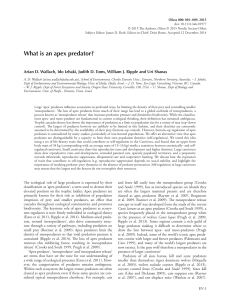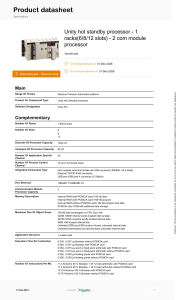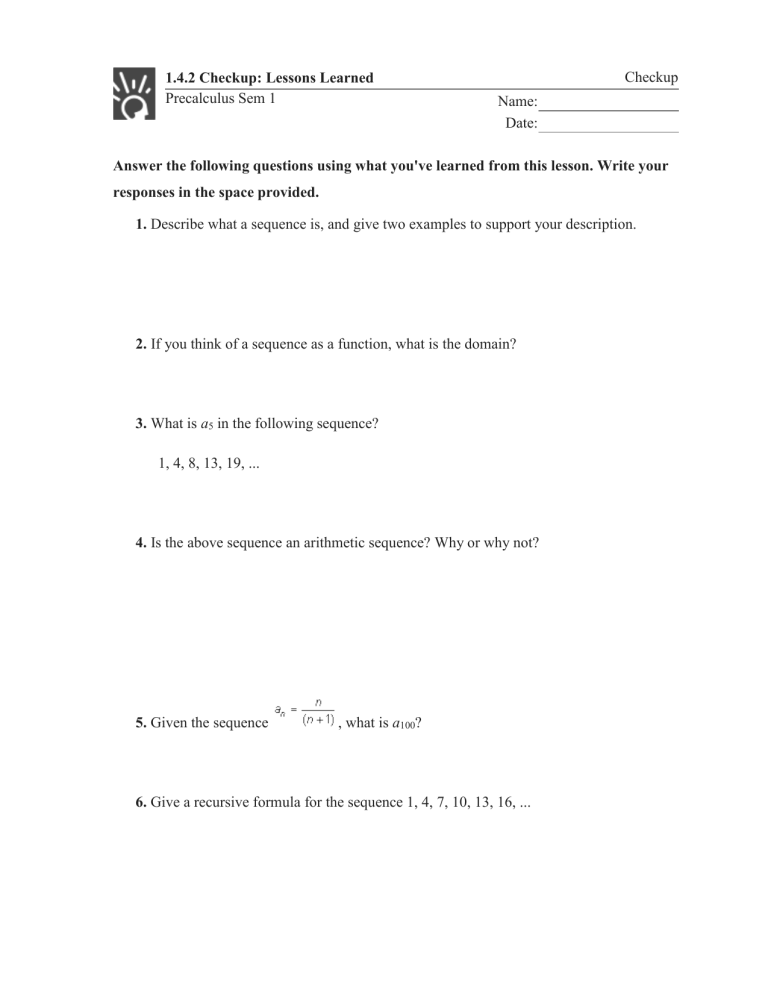
1.4.2 Checkup: Lessons Learned Precalculus Sem 1 Checkup Name: Date: Answer the following questions using what you've learned from this lesson. Write your responses in the space provided. 1. Describe what a sequence is, and give two examples to support your description. 2. If you think of a sequence as a function, what is the domain? 3. What is a5 in the following sequence? 1, 4, 8, 13, 19, ... 4. Is the above sequence an arithmetic sequence? Why or why not? 5. Given the sequence , what is a100? 6. Give a recursive formula for the sequence 1, 4, 7, 10, 13, 16, ... 7. Find the first five terms of the following sequence: an = 2an-1 + 3 a1 = 2 8. Find the sum that is given by . 9. Write the series 2 + 4 + 6 + 8 + ... + 100 using sigma notation. 10. The 50th term of an arithmetic sequence is 86, and the common difference is 2. Find the first three terms of the sequence. 11. If you save one penny on the first day of January, two pennies on the second day of January, three pennies on the third day of January, and continue with this pattern for a whole year, how much will you have saved by December 31? 12. An arithmetic sequence has a1 = 5, and a5 = 13. How many terms of this sequence must be added to obtain 60? 13. Suppose you purchase a car for $24,500, and it depreciates at the rate of $1,500 a year. Express the car's value after five years as a term of an arithmetic sequence. 14. For the sequence 15, 22, 29, 36, 43, ... , solve the following problems: a. Write a recursive formula for the sequence. b. Write an explicit formula for the sequence. c. Find the sum of the first 100 terms of the sequence. 15. The fifth term of an arithmetic sequence is 100, and the common difference is 4. Find the first three terms of the sequence. 16. Your starting annual salary for a new job is $40,000 and you are promised an annual raise of $1,500. What will your salary be at the beginning of your 11th year? 17. Suppose your grandparents started a savings account for you on your first birthday with a deposit of $100. On your second birthday, they added $200, and on your third birthday they added $300. They continued this pattern for your first 10 birthdays. Ignoring interest, how much is in your savings account after they make the deposit on your 10th birthday? 18. Determine the common difference, the fifth term, and the sum of the first 100 terms of the following sequence: 1, 2.5, 4, 5.5, ... Copyright © 2018 Apex Learning Inc. Use of this material is subject to Apex Learning's Terms of Use. Any unauthorized copying, reuse, or redistribution is prohibited. Apex Learning ® and the Apex Learning Logo are registered trademarks of Apex Learning Inc. 1.4.2 Checkup: Lessons Learned


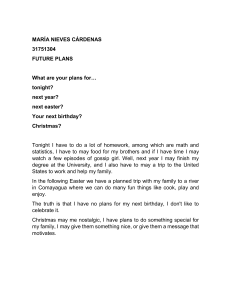
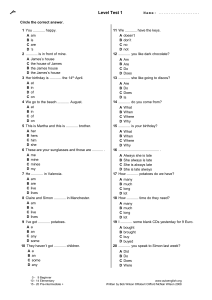
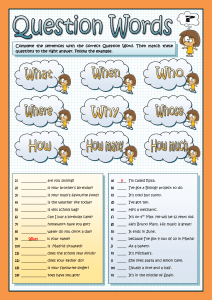
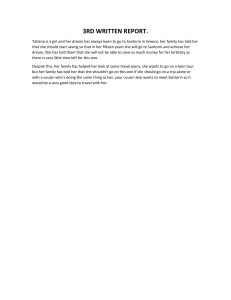

![[Free-scores.com] mouret-jean-joseph-rondeau-8117](http://s2.studylib.es/store/data/009283464_1-511fd28bb2be9e0f975ddd0fcb2c294c-300x300.png)
